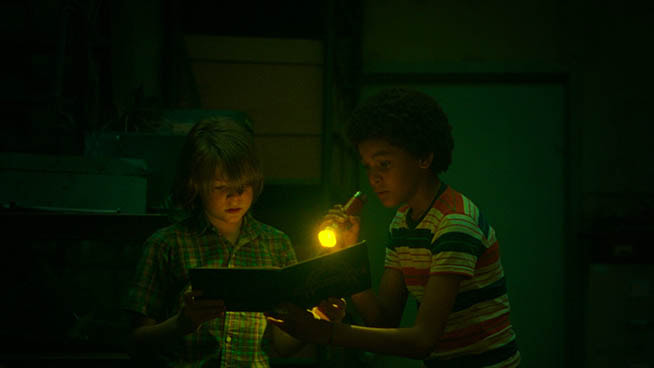DISABILITY, DIVERSITY, AND “WONDERSTRUCK”
What responsibility is placed on a filmmaker when the crux of a role centers around a disability?
We escape to the movies to watch actors in transformative performances. We go to watch Daniel Day-Lewis metamorphose into Abraham Lincoln, to see Gal Gadot become Wonder Woman, or to witness Bill Skarsgård turning into nightmare-inducing clown Pennywise. So what happens when the crux of a role centers around a disability?Nowadays, we would (and should) be up in arms if a character’s race was key to the role and it was miscast (see Aloha, Ghost in the Shell, or, historically, literally anything involving blackface). But we don’t seem to have scratched the surface of the conversation when it comes to disability.
It’s admittedly a complicated topic, and not one I’m an expert in. However, I do see more films than the average cinemagoer, and recently Wonderstruck brought the conversation to my attention. The film centers around two deaf children, one who was born hearing-abled and one who wasn’t. After leaving the film, I found out that one of the stars, Millicent Simmonds, is actually deaf. The opportunities for someone differently abled to play a role they actually represent seem so rare, and it made me wonder why there isn’t such a concern for diversity on this front.
Why is disability not a conversation that’s more front and center? Is it because as a society we tend to be uncomfortable with anything that’s considered “different”? Is it because it’s a topic that many of us aren’t familiar with the intricacies of and so we don’t want to misspeak?
Or is it just that there aren’t opportunities made available to actors of differently abled backgrounds so we don’t bother to talk about it? I spoke to Wonderstruck producer Christine Vachon and she herself acknowledged they came under scrutiny for casting the hearing-abled Julianne Moore as a deaf character. However, they also did make a point to cast a deaf actress as the younger version of that character.
I can understand the challenge of the situation. Wonderstruck lucked out in Simmonds, who fit the bill of emotive, charming and deaf. But if the role hadn’t centered around a deaf character, would Simmonds ever have had the chance to act in a feature film? How many other talents are there floating out in the ether who will never be discovered because there isn’t a film about their particular disability?
Casting is a complicated task, but hopefully opportunities created by films like Wonderstruck will open the door for talent who happen to have disabilities, ideally not just for roles that center around disability.
It’s admittedly a complicated topic, and not one I’m an expert in. However, I do see more films than the average cinemagoer, and recently Wonderstruck brought the conversation to my attention. The film centers around two deaf children, one who was born hearing-abled and one who wasn’t. After leaving the film, I found out that one of the stars, Millicent Simmonds, is actually deaf. The opportunities for someone differently abled to play a role they actually represent seem so rare, and it made me wonder why there isn’t such a concern for diversity on this front.
Why is disability not a conversation that’s more front and center? Is it because as a society we tend to be uncomfortable with anything that’s considered “different”? Is it because it’s a topic that many of us aren’t familiar with the intricacies of and so we don’t want to misspeak?
Or is it just that there aren’t opportunities made available to actors of differently abled backgrounds so we don’t bother to talk about it? I spoke to Wonderstruck producer Christine Vachon and she herself acknowledged they came under scrutiny for casting the hearing-abled Julianne Moore as a deaf character. However, they also did make a point to cast a deaf actress as the younger version of that character.
I can understand the challenge of the situation. Wonderstruck lucked out in Simmonds, who fit the bill of emotive, charming and deaf. But if the role hadn’t centered around a deaf character, would Simmonds ever have had the chance to act in a feature film? How many other talents are there floating out in the ether who will never be discovered because there isn’t a film about their particular disability?
Casting is a complicated task, but hopefully opportunities created by films like Wonderstruck will open the door for talent who happen to have disabilities, ideally not just for roles that center around disability.
This article originally appeared on KFOG.com on October 27, 2017.
